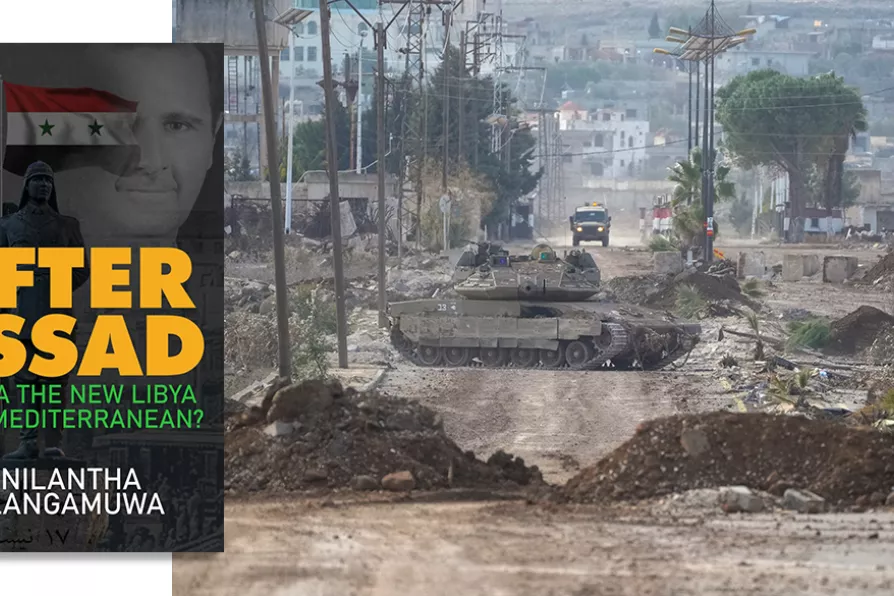RON JACOBS welcomes a timely history of the Anti Imperialist league of America, and the role that culture played in their politics

 IMPERIALISM CALLS THE SHOTS: Israeli army armored vehicles block a road leading to the town of Quneitra, Syria, January 5, 2025
[AP Photo/Mosa'ab Elshamy]
IMPERIALISM CALLS THE SHOTS: Israeli army armored vehicles block a road leading to the town of Quneitra, Syria, January 5, 2025
[AP Photo/Mosa'ab Elshamy]
After Assad: Is Syria the New Libya in the Mediterranean?
Nilantha Ilangamuwa, Self Published, £6.26
TO most people who read or otherwise consume Western media, the fall of the Assad government in Syria was unusually quick and even surprising.
For most of this demographic, it seemed that Assad and his rule was fairly stable, albeit somewhat ruthless. Unknown by most, however, was that the relentless attacks by Israeli and US forces together with the ongoing civil war fought between the Syrian military and various militias supported by Tel Aviv, Washington, and Ankara were taking a heavy toll on the Syrian people and the Damascus government of Assad. When one added the cruel sanctions enforced on the Syrian economy, it becomes clear that it was just a matter of when the regime would fall. The other question was which warlord (or militia leader, if you will) would end up leading the final charge.
Now, barely a month after Assad took a plane to exile in Russia, the situation in Syria remains mostly unclear. Indeed, the only certainties that exist are these: Israeli forces are bombing parts of the country and expanding their military occupation beyond the Golan Heights; US forces are also bombing parts of the country, seemingly reinforcing their hold on the areas they currently occupy either with US forces or in a shaky and dangerous (for the Kurds in Rojava) alliance with Kurdish forces historically related to the PKK. Other certainties include the Turkish desire to guarantee its hold on northern Syria. The fate of Russian and Iranian bases and military support remain up in the air.

ALEX HALL follows the battered fortunes of Syria, a multi-ethnic country caught in the crossfire of competing imperialist interests

RON JACOBS salutes a magnificent narrative that demonstrates how the war replaced European colonialism with US imperialism and Soviet power

RON JACOBS welcomes an investigation of the murders of US leftist activists that tells the story of a solidarity movement in Chile











